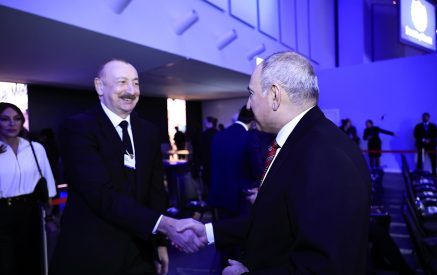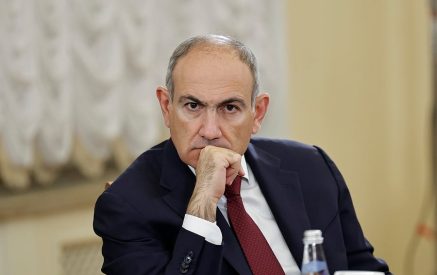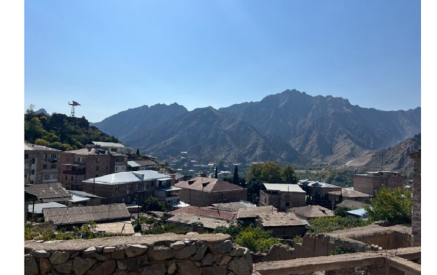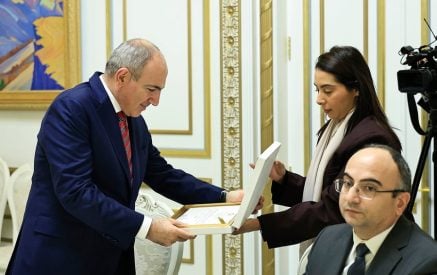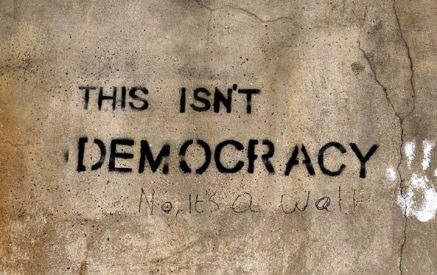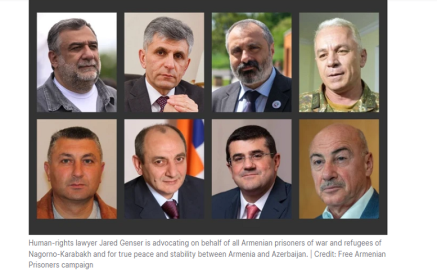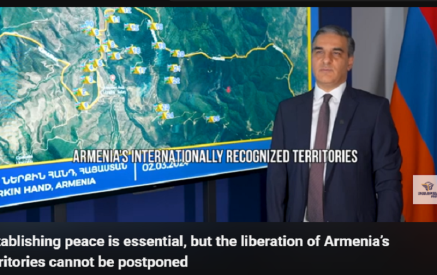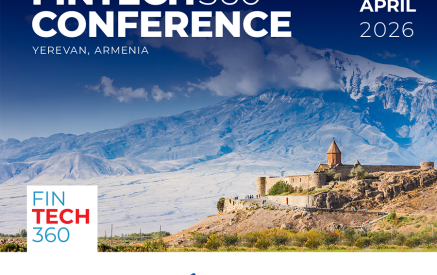by Michael Rubin
On April 5, US Secretary of State Antony Blinken and USAID Administrator Samantha Power, alongside European Commission President Ursula von der Leyen and European Union Foreign Affairs chief Josep Borrell met Armenian Prime Minister Nikol Pashinyan in Brussels. The State Department said the meeting’s purpose was “to reaffirm support for Armenia’s sovereignty, democracy, territorial integrity, and socio-economic resilience.” Turkey reacted furiously and without a sense of irony, calling Washington and Brussels’ diplomatic involvement a violation of neutrality since the matter did not concern them.
To underscore the US and European commitment to Armenia’s security and economic resilience, the US and European Union promised $290 million to be disbursed over four years.
Read also
The Biden administration and European officials may want to view the money as a sign of their commitment to Armenia, but the package actually does the opposite.
To offer Armenia $72.5 million per year suggests a lack of seriousness. It is one-third of what the United States gives the Central African Republic, even before adding the European contribution to that country, and just slightly more than aid to Moldova, a former Soviet state with roughly the same population. Rather than truly supplement Armenia in its pivot to the West, therefore, the State Department and USAID are giving Armenia an infusion to get it to the starting line.
For too long, Blinken and Power have sought to pair any concession to Armenia with appeasement of Azerbaijan. So too do they now. True, US foreign assistance to Azerbaijan lags behind that of Armenia. This does not surprise, given that Azerbaijan receives tens of billions of dollars in hydrocarbon income annually.
Nevertheless, the State Department and USAID increased foreign assistance to Azerbaijan by more than 1,100 percent since 2021. Such actions have consequence. Azerbaijan has reportedly received more than one arms delivery per day, flying in advanced weaponry from both Israel and Pakistan.
Such a buildup comes not only after Azerbaijan uprooted and expelled Nagorno-Karabakh’s indigenous Armenian population, but also as it continues to attack Armenia proper and occupy Armenian land. Surveying the Azerbaijan-Armenia border near Nerkin Khndzoresk last year, the Armenia guard post under construction was simple: A two-story building to provide living and working quarters for the Armenia Border Guards in the area. Less than a kilometer away, the new Azerbaijani post was also visible, with advanced radar, helicopter landing and fuel facilities, rocket launchers, and machine gun nests. Put another way, Armenia built a border post, Azerbaijan constructed a forward operating base to continue its war.

Michael Rubin
Armenians in the United States should compare the US-European offer with aid accompanying other peace processes. Egypt receives approximately $1.3 billion annually to sweeten its agreement to the Camp David Accords. This has amounted to tens of billions of dollars in military assistance. Israel received even more.
Then there is North Korea, the world’s most repressive country and a designated state sponsor of terror. After Pyongyang signed the 1994 Agreed Framework, Washington provided it over $400 million in energy assistance despite its persistent cheating.
Pursuing peace is commendable but when haphazard, it undermines security and encourages aggression. Blinken and Power should not expect plaudits for their aid package but rather opprobrium, because they shows how unserious they are. A storm is brewing in the Caucasus. Armenia faces an existential threat from Azerbaijan and Turkey’s irredentist, genocidal ideology and economic peril from a resurgent and vengeful Russian President Vladimir Putin.
Seventy percent of the $5.7 billion Armenia receives in remittances comes from Russia. Russia also represents 40 percent of Armenia’s export market, and a major source of its energy. Put another way, as Armenia potentially faces a Berlin Crisis-scale blockade, Blinken and Power wish to provide Armenia with 2.5 percent of what they stand to lose. This is the diplomatic equivalent of giving a starving child in Sudan a peppermint candy and declaring it proof that the United States stands firm against hunger.
After Russia’s Nagorno-Karabakh betrayal and its overt efforts to interfere violently in Armenian politics, Armenians deserve real democracy, security, and partnership. Power made her career writing about the Armenian Genocide, and President Biden recognized it. Blinken, meanwhile, seeks moral authority from his stepfather’s Holocaust experience. How sad, then, they seem not to recognize that the Armenian Genocide is not a forgotten historical event, but a looming threat that negligence can catalyze.
(Michael Rubin is director of policy analysis at the Middle East Forum and a senior fellow at the American Enterprise Institute.)









